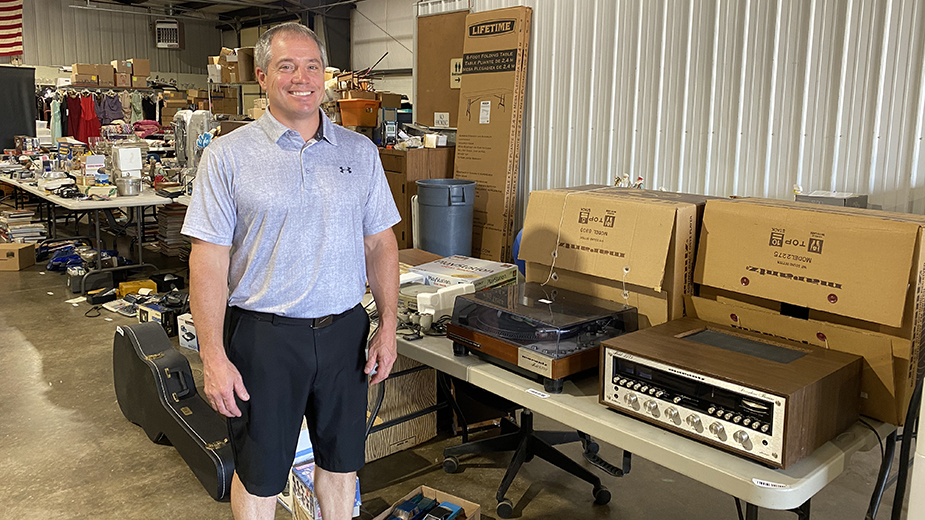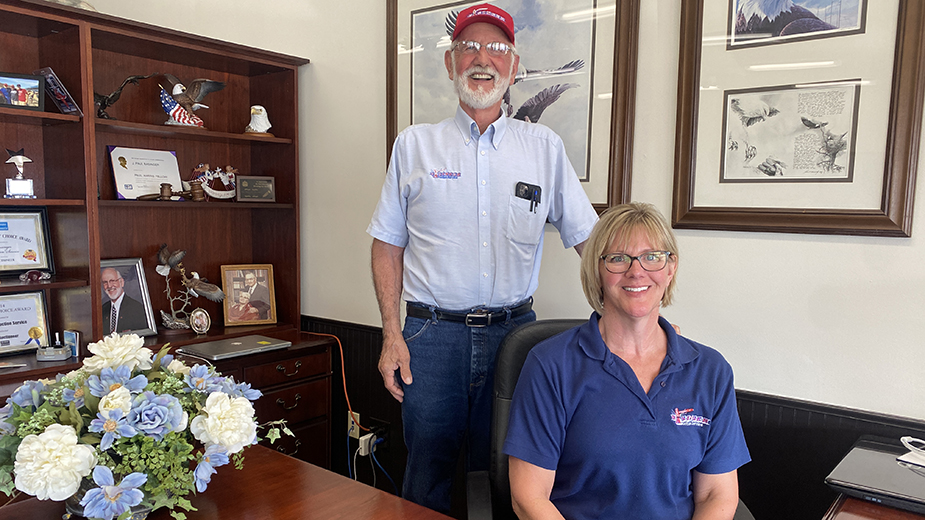YOUNGSTOWN, Ohio – The popularity of auctions has grown with the switch to internet auctions but antiques, collectibles and knickknacks have lost their value with changing consumer tastes.
Auctions, which have always been a good source for antiques and vintage items, have witnessed the demand shrink each year. Antique furniture and vintage decor are no longer popular among the majority of young consumers.
Paul Basinger, auctioneer, real estate broker and owner of Basinger Auctions in North Lima, says this is because the younger generation is focused on two things: practicality and affordability.
“The younger generation has no interest in Hummels and no interest in fine glassware. The collectible market [is down] … the younger generation has no interest in collecting memorabilia,” Basinger says. “There was a time when fine glassware for cream and sugar would sell for $75 but today I can’t get $5.”
According to Basinger and Chris Roman – an auctioneer at George Roman Auctioneers in Canfield – antiques have lost 45% to 70% of their estimated value over the past two decades.
“The antique market has shifted dramatically. What our grandparents have collected are not desired or displayed in homes today,” Roman says. “What people want nowadays is different than what they wanted before.”
Almost all auctions take place online, which is why the consumer demographics have shifted toward younger people and demand for items has changed.
Antiques, however, haven’t completely lost their value. Especially with most – if not all — auctions taking place online. Basinger conducts only online auctions and Roman conducts 99% of his auctions online.
Basinger and Roman switched to online auctions years ago and have steadily seen their companies and number of bidders grow. Despite low demand for antiques, access to international consumers almost guarantees a sale and getting the highest price in a short amount of time.
“You can liquidate a large amount of items in a short time period. It’s more convenient than typical sales,” Roman says. “Also with everything online, you get a much larger audience with proper marketing.”
Auctions can sell almost anything. Basinger says the four “D’s” – as he labels them – keep auctioneers busy: “death, debt, divorce and downsizing.” Basinger and Roman say they average more than one auction a week. The key is to ask, “What’s hot and what’s not?”
A few categories of vintage items have a growing market, Roman says. Toys from the ’80s like G.I. Joe and Barbie have been in high demand by toy collectors and the general population, according to Roman. Retro gaming consoles like Ataris and the early Nintendo consoles and games are also in high demand.
Basinger recently held an auction open to bidders throughout the world. He sold thousands of cameras; each was sold for hundreds or thousands of dollars. Good quality tools and heavy machinery are always sold quickly.
Oddly enough, banana seat bikes are also in high demand. Basinger sold one to a buyer in Japan and sold another recently for close to $1,000.
The real estate market hasn’t slowed down either.
Despite inflation and higher interest rates, Julie Cerneka, a real estate broker and auctioneer for Basinger, describes the real estate market as “crazy.”
Often the properties Basinger lists don’t make it to auction. This is because Basinger Auctions has a “Buy it Now” price that allows buyers to offer the asking price but sellers retain the option of accepting, declining or suggesting a counter offer.
Often houses are sold for prices higher than asked or market value.
“We had one house in Newton Falls that sold in less than 72 hours for $30,000 over asking,” Cerneka says.
“Flipping,” a term used to describe buying a worn down house and remodeling it to resell it at a higher price, is no longer possible because of inflated house prices, according to Cerneka.
“Homes that were selling for $30,000, $40,000, $50,000 are now selling for $80,000, $90,000, $100,000. So the opportunity to buy a home, flip it and make a profit is not really an opportunity anymore,” Cerneka says.
Basinger Auctions recently had a turnkey house up for auction. “The opening bid was $20,000 but on auction day it brought in over $50,000,” Cerneka says.
Luxury and spec housing remains in high demand and can bring large offers. Basinger says he’s listing a property in the Canfield area – only six other houses built in the vicinity are in that price range. He’s not expecting the property to be available for long.

Commercial real estate and vacant land, Roman says, are in high demand but his business hasn’t seen as many auctions as before because of the strength of the market.
“The commercial market is doing really well,” Roman says. “The Mahoning and Trumbull County area businesses are doing really well. They’re selling a lot faster rather than needing us to liquidate.”
Vacant land is a popular purchase for people to build houses or to just own extra property for a multitude of reasons: farming, hunting or privacy. Property is never on the market for long and sells for a good amount.
With such large quantities to sell and access to an international audience, marketing is an auctioneer’s best tool. Basinger says he often advertises in traditional media like newspapers as well as social media.
Basinger and Roman say social media is great for target marketing because of special interest groups.
Basinger recently had five camera auctions with 500 lots. By using targeted marketing, Basinger was able to sell the cameras for the most amount of money.
“All the money that we’re ever going to get for anything is out there in a buyer’s pocket. For the camera auctions, we contacted known camera collectors and resale buyers,” Basinger says. “One buyer in Cleveland probably spent $30,000 with us just for these cameras. In one [camera] auction, there were 44 buyers and two were international.”
Roman recently held several auctions to sell thousands of sports cards. With experts’ help and targeted marketing, Roman isolated rare and valuable cards and sold those separately while selling large quantities of other cards to make the most money.
The shift to online auctions has also changed what it takes to be an auctioneer.
Bid calling – the signature fast speaking style – is no longer required to become an auctioneer. With most everything online, there is no longer a need for this skill. However, when he conducts in-person charity auctions, Basinger says he uses his bid calling and that always encourages people to give or buy.
Ohio changed the law last year that apprenticeships are no longer required to get an auctioneer license. In fact, Roman says, if an individual makes over a certain amount of money from auctioning a year, he must become certified.
Basic skills have become more closely related to target marketing and being more tech-savvy for the auction websites.
Pictured at top: Paul Basinger and his daughter, Julie Cerneka, are real estate brokers and auctioneers for Basinger Auctions in North Lima.
